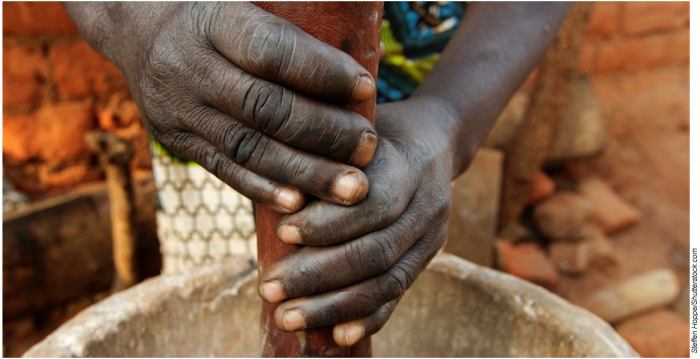
Consumer protection is one of the two main objectives of food safety, the second being the export of agri-food and agroforestry products. Still, there is a vacuum to be filled in terms of legislation and regulations. Aware of Burkina Faso's worsening food safety and quality situation, the authorities are attempting to rectify the situation. To achieve this, a number of measures are being implemented. These range from simple capacity building and awareness raising for those involved in the processing of agricultural and forestry products, to the drafting of laws and regulations, the development of national standards and the use of Codex Alimentarius standards, and finally, the development of the National Food Safety Emergency Response Plan.
In Burkina Faso, the National Public Health Laboratory and ABNORM are the main control bodies responsible for market surveillance and monitoring product quality in the country. The former issues the sanitary quality certificate for imported food products, while the latter issues the National Certificate of Conformity. Despite this system, product control is almost non-existent. At company level, processed agri-food products are not inspected before they are put on the market. The quality of food products consumed in Burkina Faso, and even in the sub-region, poses a real public health problem.
The “Development of Added Value in the Agricultural Sector in Burkina Faso (VAFA)” was a decentralised National Technical Assistance Project funded by the European Union with a financial contribution from the Government of Burkina Faso, AFD (France) and DANIDA (Denmark). The VAFA project developed an economic and technical environment for agricultural commodity chains that is conducive to increased trade and commerce, particularly in terms of the application of business law, regulations on standards and food safety, "niche products" (product certification labels, GIs, organic farming), and the legal framework for contract farming. The supply of healthy, high-quality products to Burkina's urban centres was improved by diversifying agriculture in a sustainable way. Inclusive development of the processing and downstream valorisation of agricultural products and export promotion in line with the National Economic and Social Development Plan helped to reduce poverty.
From 2018 to 2023, AFC implemented the institutional component 3 to support the General Directorate for the Promotion of the Rural Economy (DGPER) in the overall coordination of the VAFA project with its three components. Bringing products up to national and international standards and developing contract farming to secure supplies for processing companies was the starting point for the value chain approach under component 3. In particular, players were supported who have decisively begun in setting their structures in line with certification and labelling requirements. Activities comprised the training of trainers in food safety and plant health using reference procedures in quality management such as HACCP, GMP, GFSI and RSAC and equivalents, as well as overall support for operators in quality control systems. Capacity building for farmer organisations in good governance, cooperative, administrative, financial and managerial management was undertaken. Diagnosis of control, measurement and analysis systems, analysis of food safety regulations and legislation, identification of development opportunities for niche products in Burkina Faso, support in setting up labelling projects for geographical indicators and organic products, and contacts with export markets in the UEMOA and ECOWAS region as well as internationally were carried out. An additional study was dedicated to the Organization for the Harmonization of Business Law in Africa (OHADA) fostering economic development in West and Central Africa by creating a better investment climate.
Out of the emerging value chains identified in the National Value Chain Development Strategy, the niche products ginger, soya and chilli were selected to analyse development opportunities and give recommendations to the partner. For the three niche products, it was proposed to create geographic labels.
The dried ginger currently sold on the market does not meet hygiene or processing standards. It is neither cleaned nor properly dried. In the supermarkets, whole and powdered dried ginger is being sold – imported from China and India. It was recommended to establish a production guideline through the interprofessional body, create a label and introduce Codex Alimentarius-compliant ginger processing standards. For essential oil, the use of new, processed packaging rather than bulk or recycled packaging should be promoted to improve hygiene and food safety.
The local production of soya oil cake for poultry feed cannot meet the local demand, resulting in high imports and prices, which affect the competitiveness of the poultry industry. Therefore, soya cake should be included in the input kit of the state subsidy programme. Soya oil production is marginal, despite its qualities, while Burkina Faso imports a lot of edible oil. Due to this fact, the production and processing of soya into oil should be promoted and the oil labelled enabling recommendations in public institutional orders.
All varieties of chillies are produced and processed. However, the typical varieties of Burkina Faso are not used to their best advantage. Based on the specific characteristics of the variety used, the GI label "Chilli of Burkina" should be created.
The labelling of agricultural products, based on specifications setting out requirements (nutritional, health, organoleptic, environmental and/or social characteristics), will promote access for these products to so-called niche markets, enabling them to stand out from the competition. When implementing the proposed sanitary measures to guarantee a certain standard, labelling will make these products competitive on the market.
For further information, please contact: daniela.boehm [at] gopa-afc.de
